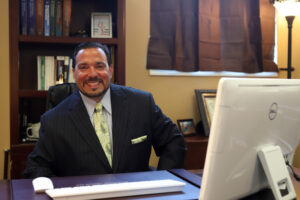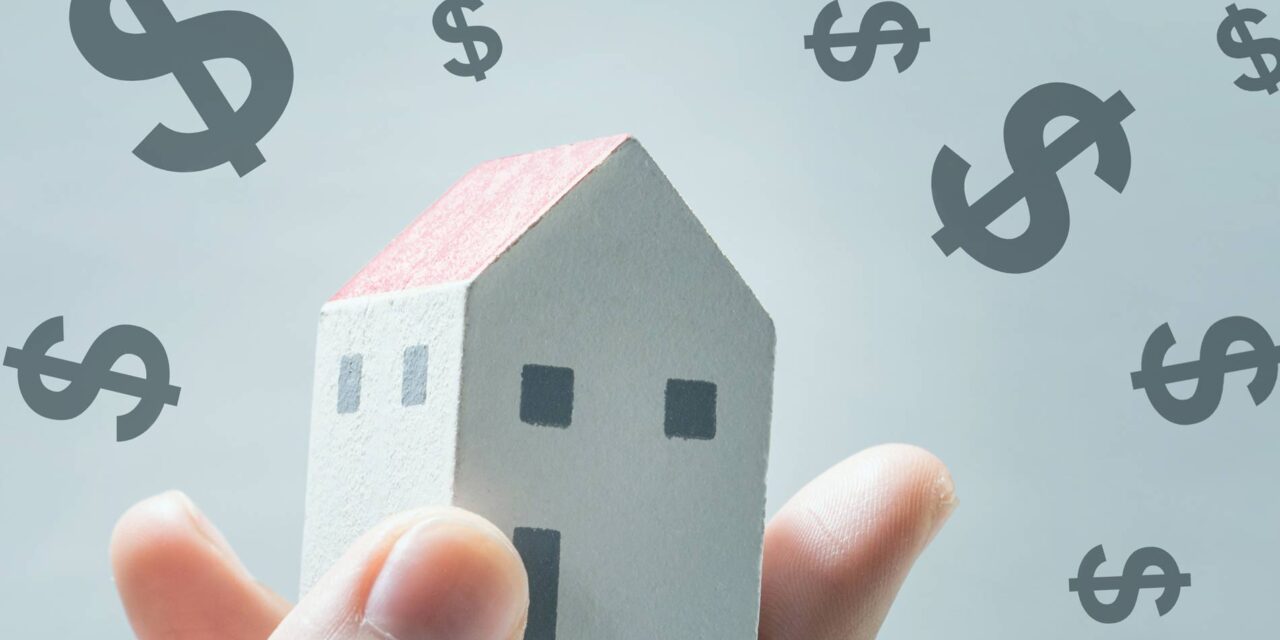Making Smart Financial Decisions In Unprecedented Times
by James Rada, Jr., photography by Nikola Tzenov
When the COVID lockdowns started, it may have seemed to some people that the world was ending. Retirees living on their investments saw their portfolios drop in value 30-40%. People who had worked at jobs for years were told not to come to work, through no fault of their own. Business owners were forced to close their doors, not knowing when, or if, they would reopen.
Food, paper goods, and cleaning supplies disappeared off store shelves. People couldn’t get through to the unemployment office to file for benefits, and even then, they had to wait weeks to see a check. For months, people lived in isolation and worried whether they could make it through the crisis COVID-19 caused.
Now that some of the problems are easing, people can look back and evaluate what they could have done better. One area of scrutiny is their finances. What did they do right? What could they have done better?
Here are some lessons local financial experts say we should have learned from the COVID lockdown to better prepare for the future.

Coleen Kramer Beal with the Velnoskey Wealth Management Group, recommends having an emergency fund set aside for times of crisis.
Have an emergency plan
The one thing it seems that all financial experts, both local and national, urge is the creation of an emergency fund that can cover your expenses for three to six months. Keep the money in a savings account, where you can withdraw it easily if needed. Although savings account interest rates are currently low, some banks offer higher interest with larger deposits in money market accounts.
“Shop around,” says Coleen Kramer Beal, a financial advisor with the Velnoskey Wealth Management Group in Westminster. “That’s the way to get the best bang for your buck.”
Don’t just look at different types of savings accounts, but different banking institutions, such as banks, credit unions, and online banks. However, don’t expect any of them to offer a rate that will keep pace with inflation.
“However, emergency funds are a form of financial insurance, not an investment,” financial consultant and author John Madison writes in his article “6 Financial Lessons Learned from the COVID-19 Pandemic.”
Part of that insurance is the peace of mind it brings you to know that if you were to lose your job suddenly, you could get by for half a year while you look for new work.
Beal cautions to avoid the temptation to spend the money in that account as it accumulates.
“Don’t use it to buy a necklace at Christmas because things look fine,” Beal says. “It’s for emergencies. This crisis should be a wakeup call in regards to seeing the importance of having an emergency fund set aside.”

Steve Aquino of Aquino Financial Group urges his clients to be patient and stick with their financial plan.
Have a long-term plan
When the stock market dropped quickly in the early days of the COVID crisis, many people wanted to pull their investments out of the market. Others saw it as an opportunity to jump into the market when prices were low and sell when the market recovered.
“You need to be careful,” says Beal. “You shouldn’t be trying to pop into Vegas and get a big jackpot. You need to know what you’re doing and why you’re doing it and stay the course.”
Steve Aquino, president of Aquino Financial Group in Westminster, says he got a lot of calls in the early days of the COVID crisis. His clients weren’t panicked.
“They understood why they were invested the way they were because we had educated them,” Aquino says. “They knew they were positioned for the long term.”
However, they also saw an opportunity to buy undervalued stocks for a large return. This was fine if the client had extra money to invest. Otherwise, Aquino, like Beal, urged his clients to stick with their plan.
He says only about 5% of his clients called worried about the market drop. Most of them calmed down once he reminded them of their long-term plan.
To be well-prepared for the long term, Bloomberg.com recommends spreading your investments over many industries. This reduces your risk if one industry should be hit particularly hard. Also, investing for the long-term means holding on to your investments for years, which helps a portfolio ride out unusual dips, but it also allows your returns to compound and make it easier for you to have a profitable portfolio.
“Have patience,” Aquino said. “The market will have ups and down, but invest for the long term, and you will be fine.”
Get properly insured
During a crisis, whether it’s COVID, a job loss, or a natural disaster, your cash may be in short supply. Having the right insurance can keep you from having to dip into your retirement or other investments and sell at a loss.
Beal recommends long-term care insurance. “If your portfolio is down, and you need long-term care, suddenly you’re not as wealthy as you once thought. You don’t want to put yourself in a position where you have to do something with your portfolio.”
She also recommends businesses have business continuity insurance. Many plans would have covered losses from the forced shutdowns the government caused.
Times of crisis can also cause a lot of stress and bring on health problems. COVID certainly had people wanting to get tested for the virus. Having health insurance allows you to get needed care without having to pay large out-of-pocket amounts.
Watch your spending
When people started getting their COVID relief checks, Aquino says, “There was an increase in online shopping. It’s like people thought it was Christmas time.”
But many financial experts say spending the check in a time of crisis is not the best course of action. “You should seriously save every penny you can. Do not go taking that stimulus check and using it all to pay off all your credit card debt, if that’s all the cash that you have,” financial expert Suze Orman said on NBC’s Today.
Even if you aren’t cash-strapped during a crisis, she cautions against making unnecessary, expensive purchases.
“You want to cut your expenses, fine,” Orman says on her podcast. “But stop with major purchases right here and right now, because the future is unknown, and this is the time for you to conserve in every possible way.”
Even before the next crisis hits, you should start watching your spending and getting your debt paid down to position yourself better for the future. Not only will you be living within your means, you won’t have a credit card bill with its minimum payment and high interest to live with during the next crisis.
“You don’t need to be worrying about making loan payments when you’re trying to keep your family safe and healthy,” Madison wrote.
Begin by looking at what you are spending your money on, particularly those impulse purchases put on a credit card. You will likely find something you can cut.
Preparing
You never know when the next crisis will hit, but you can almost be certain one will happen. You need to take action now to prepare yourself for the future.
“You need to make it a priority,” Beal said.
Even little steps in the right direction now will leave you in a more secure position when the next crisis hits.
The Slowdown of Spending
The U.S. seemed to come to a screeching halt in March when governments ordered shutdowns in an effort to curb the spread of COVID-19. For many, part of the lockdown transition meant spending less — for some it was due to losing income, for others it was simply because they weren’t doing the things they normally did like stop at Starbucks, fill up the gas tank, go out to eat, take a vacation.
Mona Becker, a high school science teacher and former Westminster City Council member, said she has been spending less overall, and when she does spend, it’s a purposeful and thought-out choice.
“We’re not spending as much at all,” Becker said. “We’re not eating
out, going out to shop, being tempted in stores. And when we do spend, it’s on home improvements — a new garage door, new screen doors,
fixed a ceiling …”
U.S. consumer spending saw a record 13.6% drop in April, according to a Bureau of Economic Analysis report. Consumer spending is the primary driver of the economy, accounting for about 70% of economic activity. But as the economy started to open back up in early summer, so did consumers’ wallets. A Forbes article reports that consumer spending had started to recover by mid-June, although it was still notably lower than it was at the same time in 2019.
The shutdown forced Becker to change what she spends her money on, and as a result, has forced her to take a hard look at her normal spending habits. When the world moves past the coronavirus pandemic, Becker said her lockdown financial habits may remain.
“I think it’s given me a whole new appreciation of where my money went,” Becker said. “I think, given some of the economic uncertainty, I plan to remain self-aware of my spending going forward.”
Another source of savings this year has been in travel — Becker said she typically takes a trip abroad in the summer for a couple weeks. While there is some disappointment in not getting to see other parts of the world, Becker said she spent this summer working on a pretty amazing garden, and working more on curriculum and school-related tasks to help prepare for the uncertainty around education in the fall.
While Becker said that she has found herself spending on different things (instead of gas and eating out, she’s doing home improvements and planting flowers and gardens) she said she is spending less overall.
“I don’t think my spending will return to pre-pandemic habits,” she said. “It was sort of nice to see the savings in the bank, and again, with the uncertainty in the economy and stock market, I would prefer to have a bit of a buffer.” – by Kym Byrnes

